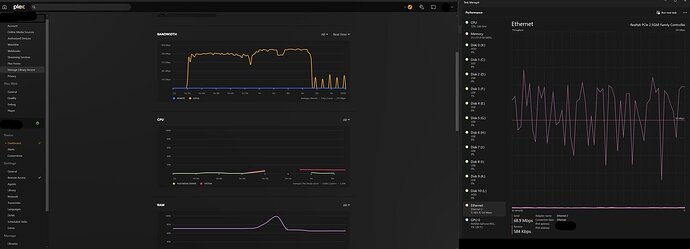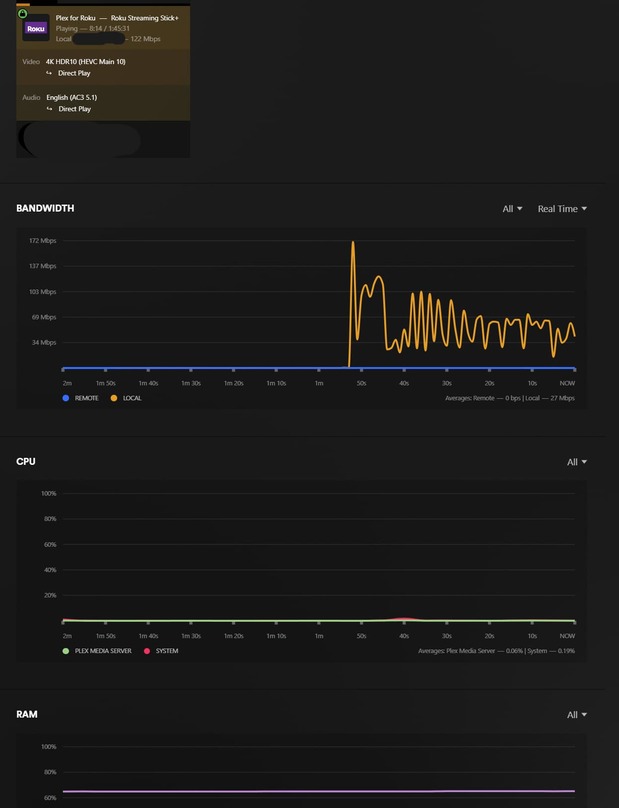Server Version#: 1.41.0.8911
Player Version#: Roku Latest
I had this issue and posted about it a few weeks ago. I ended up rebuilding Plex from scratch. I did not even pull over settings, cache or DB. And I put it on a different PC with different hardware and this moved me from Intel to AMD. My NIC, GPU and tuner card did move to the new PC.
But I am back in the same boat. I just kicked on a movie and my NIC usage maxes out and my memory usage creeps up and within 30secs the PC runs out of memory and crashes in one form or another.
Given almost everything is different and I rebuilt from scratch I have no idea what this could be outside of a niche Plex issue.
I am using a NAS in this case so media is being pulled from that over the NIC and clearly that is somehow related given the NIC hitting about 1GB. Which I do find interesting because this is a 2.5GB NIC and it does indeed move data at 2.5GB. I can copy the file from the NAS I would be playing in Plex and the NAS will serve it up to me raw at about 1.6gbs. But if I play that same file in Plex the NIC jumps to 1gb or a little less and hangs there while the RAM drains and my CPU spikes and stays high (but at like 50% or so).
I mention this because this leads me to believe that Plex is doing something to the data transmission from the NAS. Is it trying to throttle it as if it thinking this is a remote connection it needs to handle for the sake of bandwidth? If it is I could see it running itself nuts with a data rate that high and essentially blowing itself up trying.
Outside of that I don’t know what else to do.
Plex Media Server Logs_2024-08-25_12-37-37.zip (271.6 KB)








